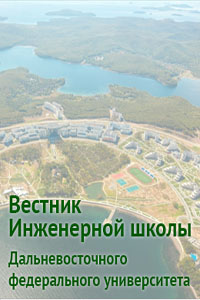Optimization algorithms in engineering design: a comparative analysis of SciPy module methods
DOI:
https://doi.org/10.24866/2227-6858/2025-1/43-55Keywords:
engineering optimization, Python, conditional minimization methods, nonlinear programming, Lagrange functionAbstract
The aim of this study is to analyze the application of various optimization algorithms for solving engineering problems. The formulation of the optimal design problem is presented in the form of nonlinear programming as a constrained extremum problem. Classical optimization methods inclu-
ded in the SciPy library of the Python programming language are considered. The study focuses on three unconstrained minimization methods: the Nelder – Mead simplex method, Powell’s method, and the Broyden – Fletcher – Goldfarb – Shanno (BFGS) method, which were integrated into the authors’ optimization algorithm. This algorithm transforms the original problem into an unconstrained extremum problem based on a modified Lagrangian function. Additionally, a separate module of the SciPy library for constrained minimization using the Sequential Least Squares Quadratic Programming (SLSQP) method is examined. To evaluate the efficiency of the studied methods, a well-known benchmark optimization problem of a cantilever plate is solved. The obtained solutions are analyzed in terms of convergence rate and accuracy. It is found that all three unconstrained minimization methods produced similar results, with a near-optimal solution obtained as early as the third iteration of the search process, followed by minor adjustments in subsequent iterations. This demonstrates the successful integration of these methods into the authors’ optimization algorithm. The SLSQP method exhibited less stable convergence, as a near-optimal solution was obtained only by the ninth iteration. Thus, the algorithm based on the modified Lagrangian function, developed by the authors, in combination with the unconstrained minimization modules of the SciPy library, can be recommended for further use in large-scale optimization problems.
References
1. Kablukov A.V., Dmitrieva T.L. State of the problem of numerical modeling of optimal design of load bearing structures of linear pipeline systems. IOP Conf. Series: Materials Science and Engineering. 880 (2020) 012078. DOI: https://doi.org/10.1088/1757-899X/880/1/012078
2. Башин К.А., Торсунов Р.А., Семенов С.В. Методы топологической оптимизации конструкций, применяющиеся в аэрокосмической отрасли // Вестник ПНИПУ. Аэрокосмическая техника. 2017. № 51. С. 51–61. DOI: https://doi.org/10.15593/2224-9982/2017.51.05
3. Ma Y., Gao X., Liu C., Li J. Improved SQP and SLSQP algorithms for feasible path-based process optimisation. 2024. Т. 188. С. 108751.
4. Gong M. et al. An experimental study on local and global optima of linear antenna array synthe-
sis by using the sequential least squares programming // Applied Soft Computing. 2023. Vol. 148.
P. 110859.
5. Дмитриева Т.Л., Чан Л.Т.М. Оптимальное проектирование стальных конструкций с ис-пользованием ANSYS // International Journal for Computational Civil and Structural Engineering. 2014. Т. 10. С. 79–84. DOI: https://doi.org/10.22337/2587-9618
6. Дмитриева Т.Л. Программный комплекс «OPTIDEST» и его использование в задачах расчёта и оптимизации стальных конструкций // Вестник МГСУ. 2011. Т. 1, № 1. C. 100–105.
7. Gommers R. et al. scipy/scipy: SciPy 1.9.0 // Zenodo. 2022. P. 15.
8. Hill C. Optimization with scipy.optimize // Python for Chemists. Cambridge University Press, 2023. Р. 247–259.
9. Мельникова В.А., Куприянова Ю.В. Применение специальных библиотек Python для изучения задач линейного программирования // Совершенствование качества образования: сборник статей XX(XXXVI) Всероссийской научно-методической конференции. Братск: Изд-во БрГУ, 2023. С. 146.
10. Певнева А.Г., Калинкина М.Е. Методы оптимизации. СПб: Университет ИТМО, 2020. C. 64.
11. Ревякин М.А. Метод Нелдера – Мида для решения задач нелинейного программирования // Приоритетные направления инновационной деятельности в промышленности. 2021. С. 78–80.
12. Лажаунинкас Ю.В., Кочегарова О.С. Одномерная оптимизация методом Пауэлла // Экономико-математические методы анализа деятельности предприятий АПК. 2022. С. 253–258.
13. Powell M.J.D. An efficient method for finding the minimum of a function of several variables without calculating derivatives // Computer Journal. 1964. vol. 7, № 2. P. 155–162.
14. Кляус К.М. Численные методы нелинейной оптимизации в задачах математического моделирования. Общая характеристика. 2021. С. 112.
15. Dwail H.H., Shiker M.A.K. Using trust region method with BFGS technique for solving nonlinear systems of equations // Journal of Physics: Conference Series. IOP Publishing, 2021. Vol. 1818, № 1. P. 012022.
16. Li L., Hu J. Fast-converging and low-complexity linear massive MIMO detection with L-BFGS method // IEEE Transactions on Vehicular Technology. 2022. Vol. 71, № 10. P. 10656–10665.
17. Pratama D.A. et al. Solving partial differential equations with hybridized physic-informed neural network and optimization approach: Incorporating genetic algorithms and L-BFGS for improved accuracy // Alexandria Engineering Journal. 2023. Vol. 77. P. 205–226.
18. Nocedal J., Wright S.J. Numerical optimization. Second edition. 2006. P. 526–573.
19. Ali K.S.A. et al. Analysis of composite leaf spring using ANSYS software // Materials Today: Proceedings. 2021. P. 2346–2351.
20. Богданова П.А., Сахаров Д.М., Васильева Т.В. Обзор методов многокритериальной оптимизации в задачах принятия решений // Инновационные аспекты развития науки и техники. 2021. № 6. С. 153–157.
Downloads
Published
Issue
Section
License
Copyright (c) 2025 Far Eastern Federal University: School of Engineering Bulletin

This work is licensed under a Creative Commons Attribution 4.0 International License.

